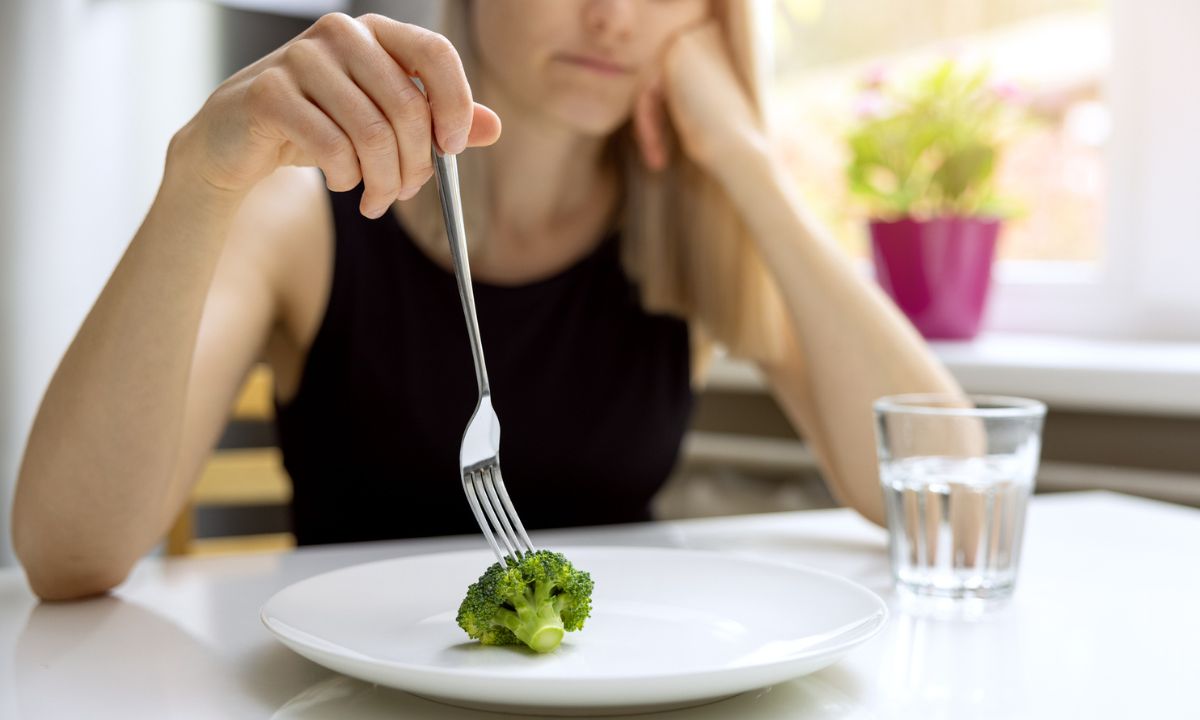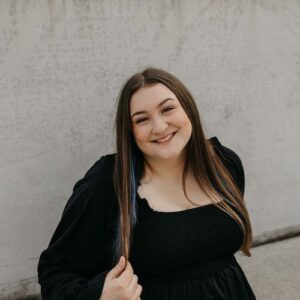Student’s View: My School Helped Me With My Eating Disorder. Now, I Help Others
Rose: If it hadn't been for my capstone project, I'm not sure I would have become educated enough to want recovery from atypical anorexia.

Get stories like this delivered straight to your inbox. Sign up for The 74 Newsletter
When I was 11 years old, I started severely restricting my diet and became intensely preoccupied with food. I found myself worrying about gaining weight constantly, and I started pulling away from friends and family.
My grades started slipping, and I no longer had energy for volleyball, which used to be one of my favorite hobbies. I knew there was a problem, but since my weight did not reflect my mindset and actions, I did not know how serious it was getting.
Two years later, when I pursued a capstone project at my middle school, Spokane International Academy, a charter public school in Washington state, I realized that I wanted to spread awareness about eating disorders, though I did not know much about them. As I learned more, I realized that the things I was reading about described what I was facing. I had atypical anorexia, which means you have the symptoms of anorexia but aren’t underweight.
The stereotypical image of a person with anorexia is a rail-thin young woman. Because I didn’t fit this stereotype, I and others initially overlooked my extreme symptoms.
Meeting with a counselor following my capstone project marked a turning point. She was encouraging and became a big help, someone I could go to when I was struggling.
When I was diagnosed and entered recovery at 15, I learned grounding techniques to better calm my mind, healthy eating habits and the concept of body neutrality, which is an approach toward body acceptance that resonated with me.
I also learned I could open up to my friends and ask them for support in my recovery. It wasn’t easy or quick, but with all this aid, I was eventually able to get to a healthier place.
If it hadn’t been for my capstone project, and the resources I found I could turn to afterward, I’m not sure I would have become educated enough to want recovery.
I shared what I learned with my classmates. However, I couldn’t complete my entire plan for my capstone project because I had also wanted to present my findings at nearby schools, and they were hesitant because they thought those students were too young.
But Spokane International’s elementary principal said I was welcome to come back after graduation and do another presentation again, and I recently returned to my middle school and spoke to multiple classrooms of sixth graders about my experience.
I worked with a counselor to develop content that emphasized the importance of recognizing and addressing behaviors associated with eating disorders.
I didn’t solely talk about facts and statistics. I also wanted to share practical advice like seeking support from trusted adults, advocating for yourself and using the grounding strategies that helped me on the road to recovery. And I handed out cards to students with information about how to seek assistance for themselves or others.
The tools I received at my school allowed me to become an advocate for others.
It’s crucial for schools to provide opportunities like these, whether through allowing students to research health topics on their own or finding creative ways that they can learn through health classes or elsewhere. For me, listening to a teacher reciting symptoms without an opportunity to discuss or reflect on my own didn’t resonate.
This is more important than ever before. Eating disorders for young people spiked during COVID and are still at an all-time high. And those with atypical anorexia, like me, are often misdiagnosed or dismissed by doctors. This is a serious issue, and schools must be equipped to provide resources to students so we can reverse this dangerous trend.
I’m hoping that by sharing my story, I can help others. If I had heard a young woman like myself talking about eating disorders when I was younger, it wouldn’t have taken me as long as it did to recognize what I was dealing with. I’m hoping that by speaking to early middle schoolers and sharing my story more broadly, I can be that person for someone else.
Get stories like these delivered straight to your inbox. Sign up for The 74 Newsletter

;)
